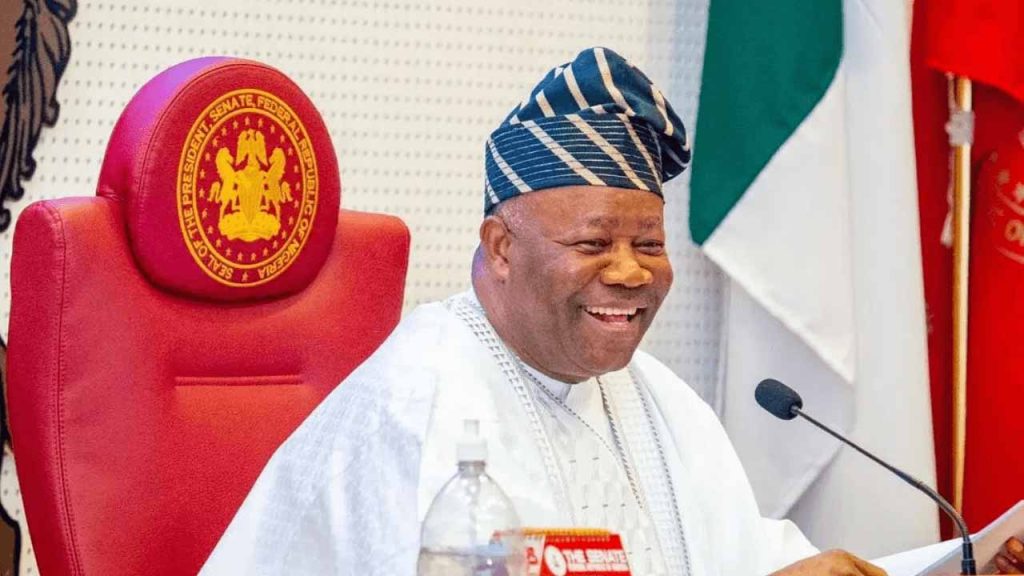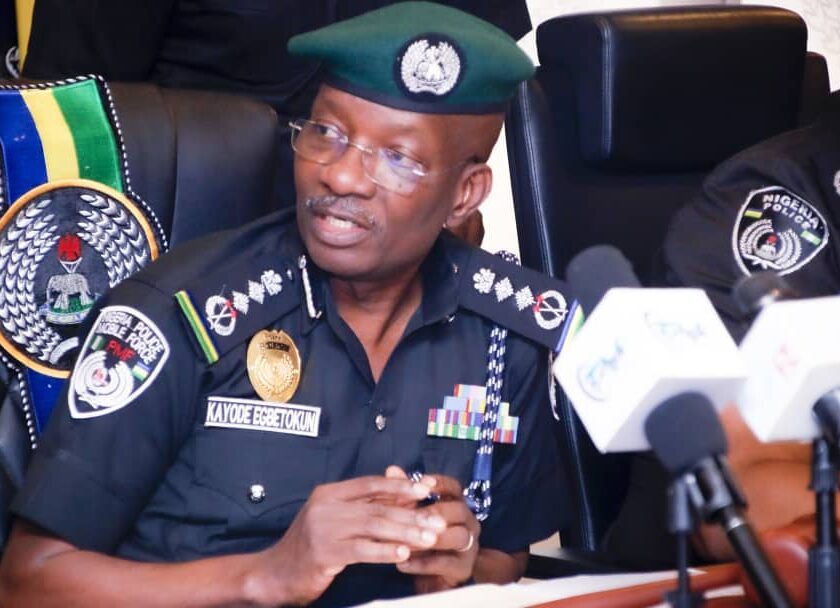Inter alia, he lamented that “social media has become the death of many people, metaphorically and literally. Many have been tried, condemned and executed on social media based on misinformation and disinformation. Conversely, many have also become brain-dead, willingly and wilfully spreading misinformation and disinformation for the sake of clout-chasing”. Drawing a distinction, he emphasized that “misinformation is mostly a mistake — usually borne out of ignorance, poor intellect or laziness to fact-check. Disinformation is deliberate, borne out of pure mischief or vendetta, and often useful for propaganda. The mobsters (I fondly call them “internet thugs”) are not governed by any rules. It is the survival of the loudest, the rudest and the vilest. Unless you are a victim of mob malignment, you would never understand. It is always sweet when you are the one dishing out the dirt, making unfounded allegations, demonising people, distributing insults or rupturing reputations with vicious rumours. It is exciting to be the enabler and amplifier. But when the boot is on the other foot, reality dawns on you”.
He did not stop there. On why people engage in “standing truth on its head, propagating falsehood and ignoring obvious facts and sound logic” Kolawole provided multiple answers, though he noted that “the list is by no means exhaustive”.
He acknowledged that “the crave for social media validation, relevance and popularity is a major motive and motivation” and also that “there is a motley crowd of wannabe influencers or activists who seek to be noticed by the loudness of their voices and the vileness of their posts”; thus implying that “it is a race to the bottom: who can post the basest of things”.
Continuing, he added that “monetisation of contents is a perverse incentive to gain engagement through likes and shares” and lastly, that “social media is home to recklessness without commensurate consequences”.
The forgoing underscores the bane of Nigeria’s socio-political development. It shows how the elites, in an attempt to achieve self-preservation, wilfully manipulate the vulnerable and serially commit “murder”.
Because misinformation is synonymous with ignorance, due to limited knowledge, while disinformation represents outright mischief, Simon Kolawole’s homily is a warning that until the elites rightly deploy their senses of exposure and opportunity, Nigeria will continue to experience a motion without movement.
Knowing the truth but deliberately championing the opposite, they stand under the banner of the freedom of expression to promote largely divisive and self-seeking tendencies. They find fulfilment in “dishing out the dirt, making unfounded allegations, demonising people, distributing insults or rupturing reputations” and also derailing governance.
Granted, criticism is essential for good governance. But when it is deployed for mischief, particularly when personalities are given undue prominence rather than issues, then national development is not the ultimate goal.
For example, the elites know more than every one of us that the 1999 constitution (even as amended) makes the legislature utterly powerless concerning its supervisory roles over the executive. The president, in this case, enjoys the latitude to appoint as many aides and spend as much public money as they desire because the much-touted approval of the legislature is merely ceremonial. Authoritatively, there are no clear-cut constitutional consequences for bypassing the legislature in appointing, spending and even borrowing. Yes, this is incontrovertible!
So it amounts to living in denial to contemplate ideal democratic practices without dynamic laws that support a viable and strong legislature.
Hence, how can we justifiably blame the legislature when we fail to first champion a balance of powers among the arms of government or advocate for strong institutions as against strong individuals?
Another example.
Because public office comes with misconceptions, Godswill Akpabio, as the President of the 10th Senate, has suddenly become one of the most debatable Nigerian politicians.
By the orchestrations of the elites, there is no longer a demarcation between his person and the office he occupies. Also, he has since lost his right to hold and express opinions, even as a senator representing a constituency.
Again by those propagated narratives, Akpabio, as a presiding officer, unilaterally passes resolutions and bills or makes decisions without the input of the other 108 senators and also, his personal views represent the corporate position of the Senate. In short, the national assembly under him is just a willing tool in the hand of the presidency of which the only path to redemption is a hostile relationship with the executive, even when the Constitution has already undermined the legislature. What a contradiction and validation that hypocrisy is simply knowing the truth but upholding the opposite!
However, and solely to inform the ignorant, a leader and their followers are on the same page only when the former inspires the latter into alignment or when both divides are bound by shared perspectives. Particularly in the parliament, every decision is a product of debates and collaboration.
Furthermore, Bola Tinubu was elected as the president, based on what he promised to deliver in the same manner that Akpabio was elected to preside over the Senate on the strength of what he represented. Though the choices of their party, they were not returned unchallenged. Their elections were keenly contested.
Not just that! Akpabio, right from the onset, has been vocal about pursuing a leadership that is defined by legislature-executive collaboration, which understandably, is the only option for good governance, given Nigeria’s peculiarities. He has never made pretences about it. This is a mark of courage.
Therefore, his favourable disposition to the procurement of a presidential jet is not a surprise. Though still an opinion, the Senate, nay the national assembly takes the responsibility for the eventual outcome, especially as the proposal originated from the House of Representatives. Certainly, there will be debates and votes.
However, beyond the series of parochial narratives, there are genuine concerns. The economy is very bad and people are suffering.
As such, the government should, first of all, renew the hope of the citizenry with the pragmatic assurances that their well-being is a priority. Let the investments begin to flow. Let the refineries commence operations. Let the farmers return to the farmlands without fear. Let the food inflation be addressed. Let the minimum wage debacle be resolved. Let the power sector work optimally.
Unarguably, all these are possible and the aircraft purchase does not in any way foreclose them if there is a will.
The elites only take advantage of the people’s despair to advance their disservice.
But even at that, once again, there is nothing anybody can do should the aircraft be purchased without the approval of the legislature because the Constitution has since settled the matter. History is replete with similar cases. Only recently, the Senate twice opposed the electricity tariff increase, but the executive had its way.
Meanwhile, according to a report, “the nation’s presidential jet is a brand from Nigeria to the world and it can boost a robust foreign policy and global engagements. The jet is not personal to Tinubu, it is for Nigeria”.
Quite instructively, “there are many ways it can be done cost-effectively. It could be done by having a long-term lease, which will involve periodic payments, by having engine programmes and insurance, which will ensure that parts of the aircraft are duly insured and paid by insurers. So, there are many means of doing it. Sometimes, it is cost-effective. And we have enough central bankers and corporate finance gurus to support it, such that it’s not a whopping amount. So, besides the current economic challenges, we should not lose sight of a jet for Nigeria. It is not for president Tinubu, personally. It is for Nigeria. The last one, currently in use, was bought by the former president Obasanjo. We need another one at this time”.
Interpretatively, a strategic government can replace an old jet without further impoverishing the people.
Who says that the elites are not aware of all these?
Equally, they are informed about the limitations of the legislature in developing democracies. They know that whereas one is entitled to their opinion, truth and objectivity are not to be sacrificed on the altar of activism and also that in every criticism, national interest should be the ultimate goal.
Even in their passion for an ‘unblemished’ senate president, our revered elites know, in their subconscious minds, that it is ideal to attack issues rather than personalities, and similarly, that advocacy for a strengthened legislature is superior to subjective criticisms.
Yet, they choose the demeaning path of ridiculing the legislature and manipulating the vulnerable through disinformation. Knowing the truth but upholding the opposite!
Whatever they set out to achieve is left to conjecture, if not outright mischief.
But may they be reminded that though “it is always sweet when you are the one dishing out the dirt, making unfounded allegations, demonising people, distributing insults or rupturing reputations”, posterity never forgets. Yes, as they say, the internet does not forget! At the fullness of time, especially “when the boot is on the other foot, reality dawns on” them.
And again, until the Constitution is repackaged to guarantee a truly independent legislature and until Godswill Akpabio is found wanting by his colleagues, he deserves the support and respect of all. Morality demands that national unity and development should guide every criticism. Like all mortals, Akpabio is not perfect but a fair assessment of the 10th Senate so far reinforces this patriotic appeal.
Egbo is a Parliamentary Affairs Analyst.
Share via:





